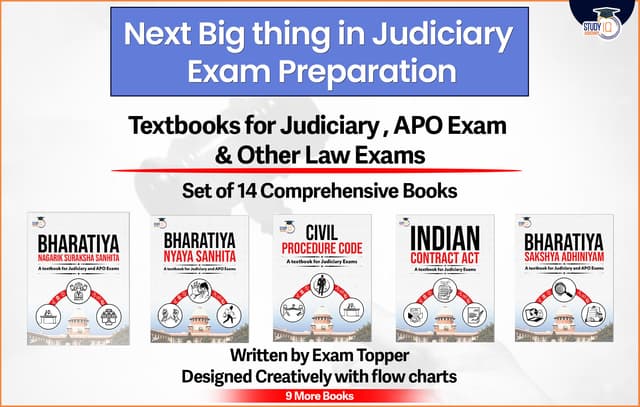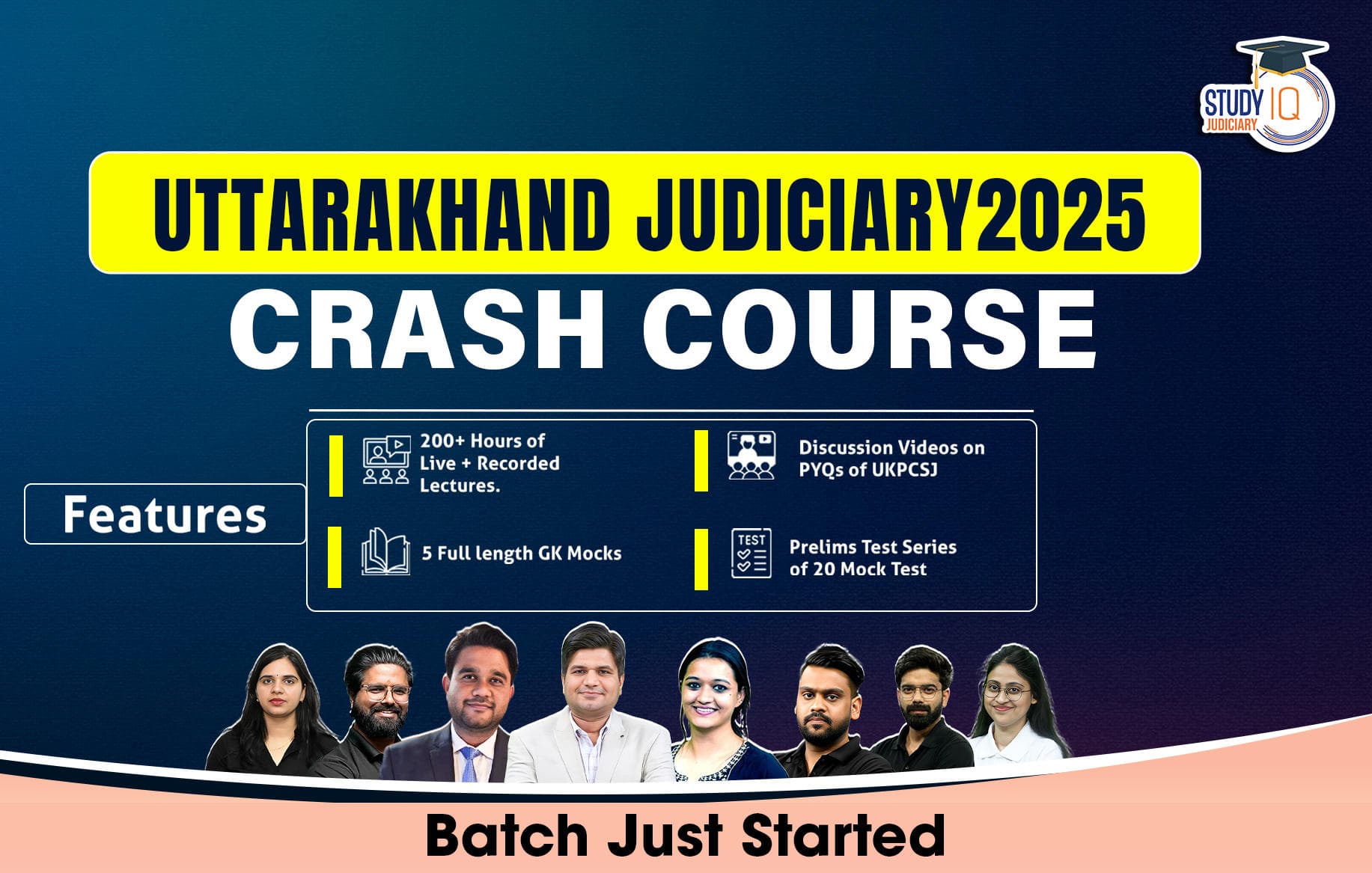Table of Contents
In recent years, the issue of Bengali-speaking migrants in India has emerged as a complex intersection of citizenship verification, inter-state politics, human rights concerns, and socio-economic conditions. The circumstances surrounding Nazimuddin Mondal and fellow migrant workers illustrate a growing trend of detentions, forced deportations to Bangladesh, and claims of mistreatment. This emerging problem is grounded in historical migration trends between India and Bangladesh, as well as in shifting political narratives and security issues across several Indian states.
Bengali-Speaking Migrants in India: Background of the Cases and Developments
The Case of Nazimuddin Mondal
- Nazimuddin Mondal, a 34-year-old migrant labourer from Murshidabad district, West Bengal, was employed in Nalasopara, Mumbai, earning ₹1,300 daily.
- On June 9, 2025, law enforcement apprehended him at his rented house. At the station, he was struck, forced into singing the national anthem, and subjected to a search of his phone for Bangladeshi contacts. He remembers observing 13 additional Bengali-speaking men in custody.
- Following a medical examination, Mondal and others were transported to Pune and subsequently flown to North Bengal while restrained with zip ties.
- In the early morning, undercover agents compelled them to cross into Bangladesh, threatening violence should they attempt to return.
- They received Bangladeshi currency, food, and water. Subsequently, a video surfaced on social media depicting Mondal and two accomplices pleading for assistance from the Chief Minister of West Bengal. They were repatriated over the Mekhliganj border on June 15, 2025.
Detentions in Odisha
- In July 2025, over 400 Bengali-speaking labourers were apprehended by law enforcement in Jharsuguda, Odisha, with certain individuals jailed for 72 hours, contravening Indian law that restricts detention without judicial review to 24 hours (Article 22, Constitution of India; Section 57, CrPC).
- Workers such as Samiul Ansari reported being picked up at night and warned against returning to the same locations for employment.
- Notwithstanding the harassment, several younger employees returned to Odisha after a fortnight due to economic exigencies.
Rajasthan Matter
- In May 2025, Amir Sheikh, a 19-year-old from Malda, West Bengal, was reportedly imprisoned in Rajasthan for a week before his deportation to Bangladesh, despite holding an Indian birth certificate.
- His parents submitted his passport; nonetheless, he continues to reside in Bangladesh. The family has submitted a habeas corpus petition to the Calcutta High Court.
Detentions in Maharashtra
- On July 30, 2025, Maharashtra declared the annulment of 42,000 purportedly fraudulent birth certificates allegedly distributed to Bangladeshi individuals. The figure was anticipated to increase by August 15.
- Detentions in Maharashtra included individuals from the Matua community, a Dalit Hindu group with historical roots in Bangladesh, signifying that both Muslim and Hindu Bengali speakers are affected.
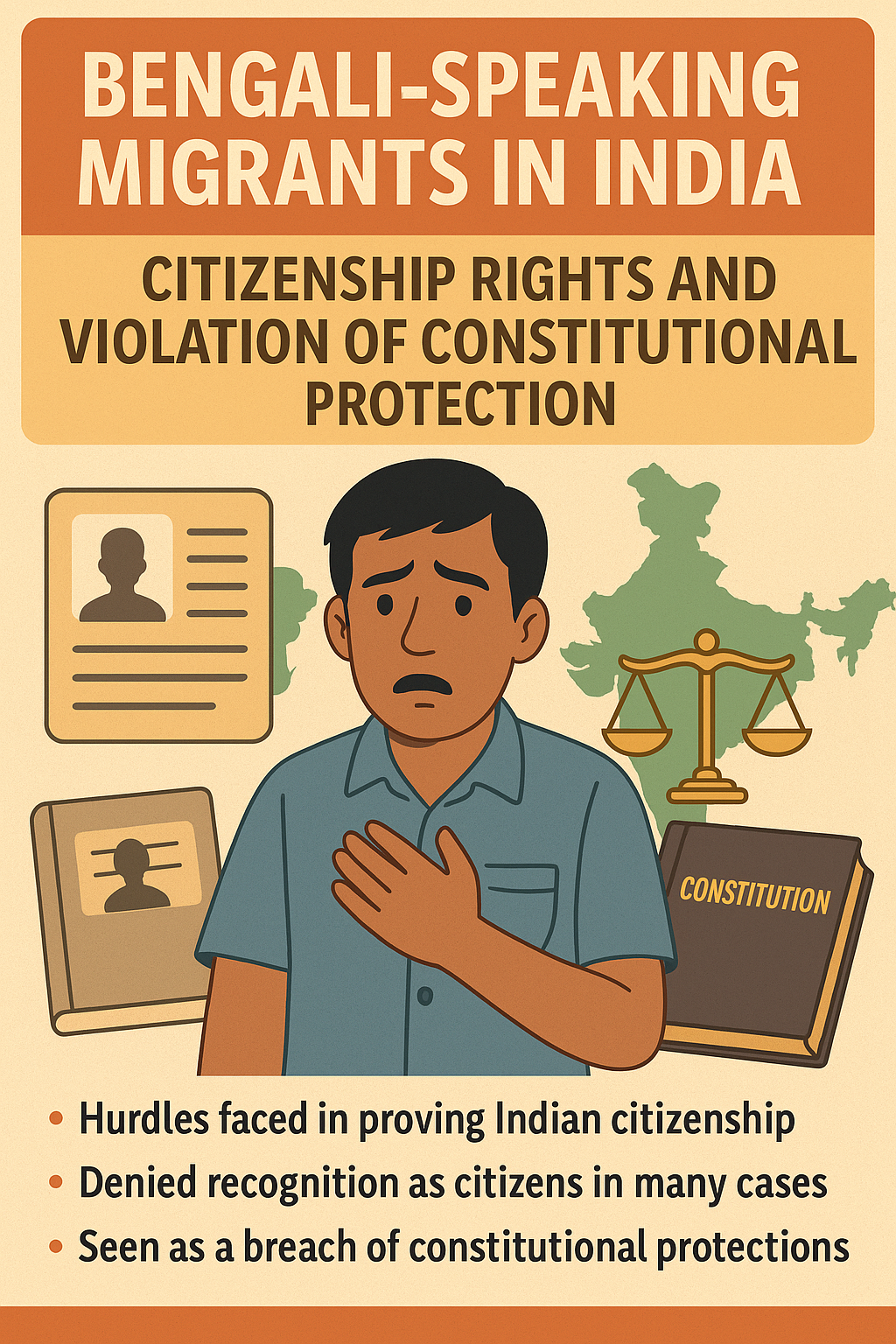
Political Context and Escalation
Post-2024 Regime Change in Bangladesh
- Home Ministry sources indicate that heightened inspections commenced after the regime change in Bangladesh in August 2024 and intensified subsequent to the Pahalgam incident in April 2025. This has notably affected Bengali-speaking migrants in states governed by the BJP.
Allegations and Political Mobilisation of TMC
- West Bengal Chief Minister Mamata Banerjee and TMC leaders assert that there is a deliberate campaign against Bengali migrants, seeing it as an assault on the Bengali language and identity. Banerjee officially cautioned against widespread protests and began a “language movement” in anticipation of the 2026 Assembly elections.
Position of the BJP
- The BJP leadership claims that these operations are aimed at Bangladeshi infiltrators, rather than citizens of West Bengal. Leaders like Suvendu Adhikari promote a Special Intensive Revision (SIR) of voter lists, likening it to analogous initiatives in Bihar. Assertions made by BJP leaders, such as Amit Malviya’s contentious declaration that “there is, in fact, no language called Bengali,” have exacerbated tensions.
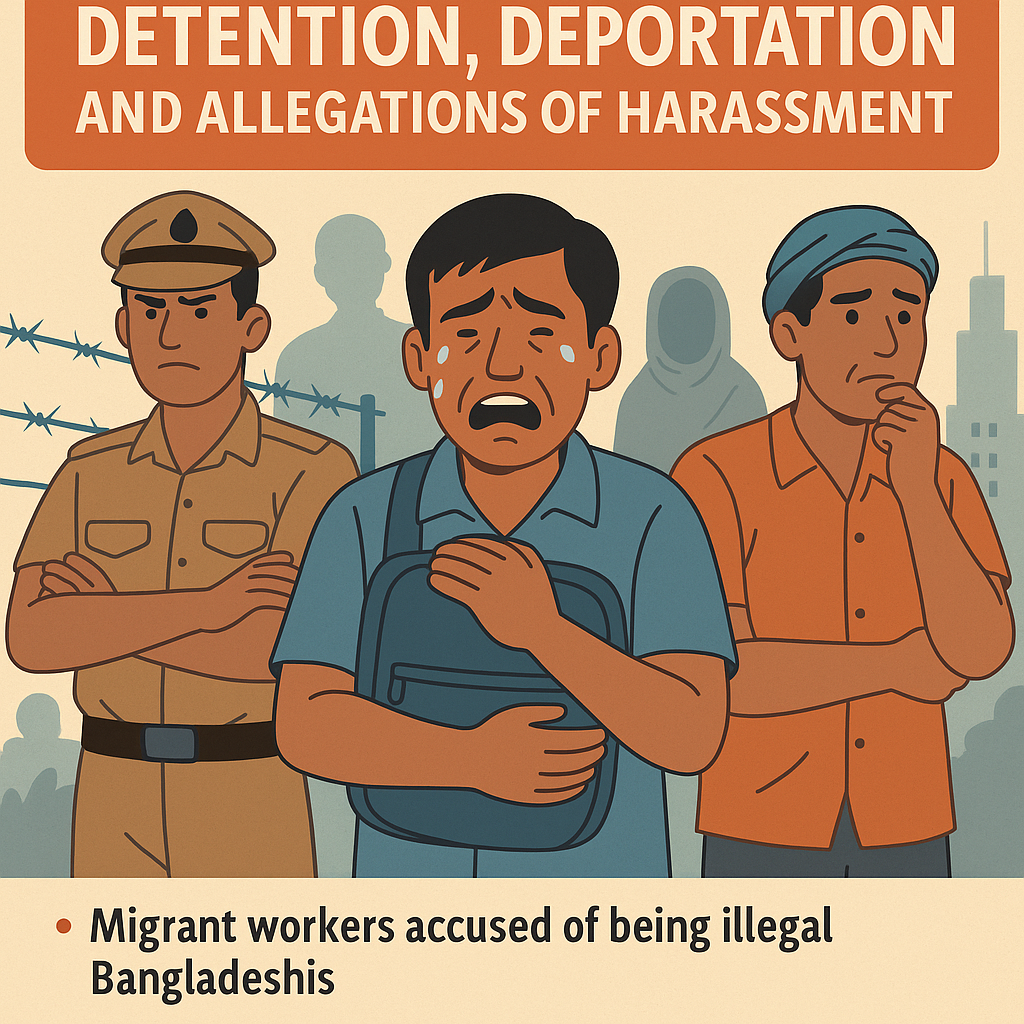
Socio-Economic Dimensions
Economic Migration and Unemployment in West Bengal
- West Bengal faces persistent unemployment and industrial deterioration. The National Statistical Office’s 2024 Annual Survey on Unincorporated Sector Enterprises indicated a decline of 3 million jobs from 2015–16 to 2022–23.
- Industrial production has decreased from 24% at the time of independence to 3.5% in 2021.
- These circumstances compel men from rural areas such as Murshidabad and Malda to relocate to other states for employment.
Reliance on Interstate Migration
- Villages next to the Ganga’s distributaries predominantly have adult men employed outside the state.
- Notwithstanding the threat of arrest, numerous individuals resume employment in BJP-governed areas due to substantially lower local pay, occasionally below ₹500 per day.
Historical and Geopolitical Context
History of Migration at the India-Bangladesh Border
- West Bengal has a 2,216 km border with Bangladesh, of which 450 km is unfenced. Historical migration originates from the 1905 division of Bengal, the 1947 partition of India, the 1971 Bangladesh Liberation War, and the 2015 Land Boundary Agreement.
- A significant number of Bengali speakers in India today are descendants of these migratory waves, encompassing both Hindus and Muslims.
Matua Community and Citizenship
- The Matua sect, primarily composed of Hindu Namashudras, migrated from Bangladesh and has been politically sought after by both the TMC and the BJP. Notwithstanding this, certain Matua labourers have encountered detention and scrutiny for unlawful entry.
Constitutional and Legal Analysis
Right to Equality and Non-Discrimination
- Article 14 of the Constitution ensures equality before the law and equal protection under the law. Detaining individuals exclusively based on language or ethnicity contravenes this principle, particularly when they are Indian nationals.
Protection of Life and Personal Liberty
- Article 21 guarantees that no one shall be deprived of life or personal liberty except by the procedure prescribed by law. Arbitrary detention, forced deportation without due process, and document confiscation constitute violations of this provision.
Procedural Safeguards Against Arbitrary Arrest
- Article 22 and Section 57 of the CrPC restrict police custody without court authorization to 24 hours. The Odisha incident, in which migrants were detained for 72 hours, constitutes a violation of fundamental protection.
Freedom of Movement and Residence
- According to Article 19(1)(d) and (e), Indian nationals have the freedom to freely traverse and reside in any location within India. The detention of migrant labourers without verified foreign nationality infringes upon these constitutional liberties.
Habeas Corpus and Judicial Intervention
- The habeas corpus petitions submitted to the Calcutta High Court aim to uphold the right to personal liberty and secure immediate release from unlawful confinement, as stipulated in Article 32 (Supreme Court) and Article 226 (High Courts).
The Way Forward
- The examples of Mondal, Sheikh, and others are not isolated occurrences but rather components of a broader national discourse concerning identity, security, and citizenship.
- The targeting of Bengali-speaking migrants, a significant number of whom are Indian nationals, presents urgent constitutional, humanitarian, and political issues.
- The pattern of detentions and deportations has undermined livelihoods, intensified political conflict between the TMC and BJP, and compromised social cohesion in states with substantial migrant worker populations.
- Historically, India’s dedication to safeguarding the rights of its inhabitants, irrespective of race or language, has been fundamental to its democratic structure. However, the recent changes threaten to undermine that concept.
- The issue ahead is to reconcile genuine national security requirements with constitutional assurances of equality, liberty, and dignity.
- Any method that merges linguistic identification with foreign nationality without stringent legal validation jeopardises justice and worsens regional and communal divisions.

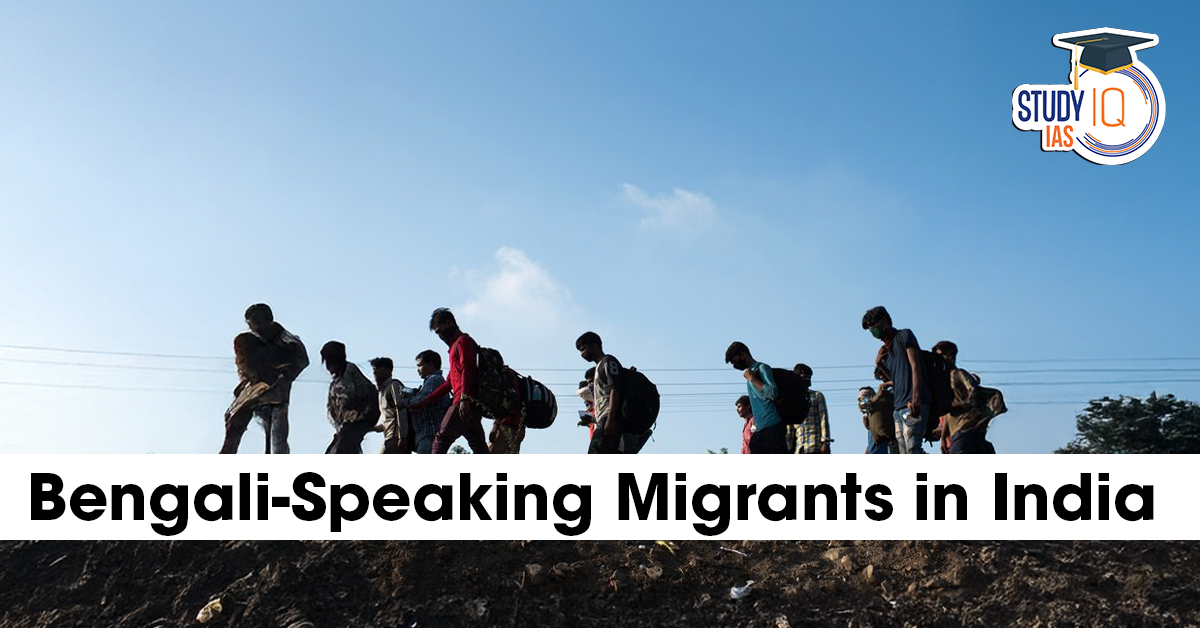
 Warring Couples Cannot Make Courts Their...
Warring Couples Cannot Make Courts Their...
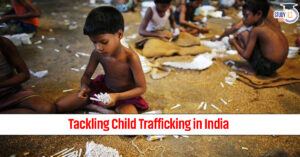 Tackling Child Trafficking in India: Leg...
Tackling Child Trafficking in India: Leg...
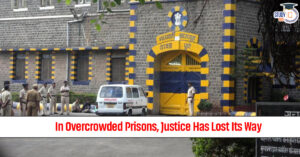 In Overcrowded Prisons, Justice Has Lost...
In Overcrowded Prisons, Justice Has Lost...






